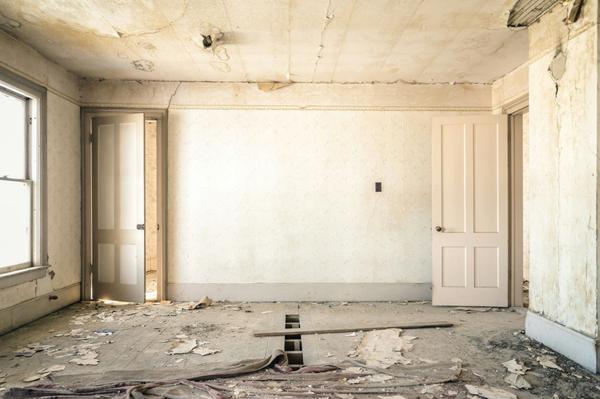
Rates go under 7% last week and holiday pending sales show strength
What's Your Home Really Worth? FIND OUT FAST AND FREE Enter your address below Get Report Subscribe below to stay up to date with the latest news in the Austin real estate Market! We post weekly on YouTube to keep you informed. Subscribe on Youtube Reach out to us below with any questions or if you or someone you know is looking to buy, sell, or invest in the Austin real estate market! Contact Us

Simple Ways to Improve your Credit Score for a Mortgage
Your credit score plays a crucial role when it comes to purchasing a home. It determines your eligibility for a mortgage and the interest rates you'll be offered. If you're planning to buy a house in the near future, improving your credit score should be one of your top priorities. Here are seven effective ways to quickly boost your credit score: 1. Pay Your Bills on Time: Late payments can significantly impact your credit score. Set reminders or automate your payments to ensure you never miss a due date. Consistently paying your bills on time is one of the easiest ways to improve your credit. 2. Reduce Your Credit Card Balances: High credit card balances can negatively affect your credit utilization ratio, which compares your credit card debt to your credit limits. Aim to keep your credit utilization below 30% to improve your score. Paying down your balances will not only lower your credit utilization but also show lenders that you're responsible with your credit. 3. Avoid Closing Old Accounts: While it may be tempting to close unused credit cards, doing so can actually harm your credit score. Closing accounts reduces your overall available credit and could increase your credit utilization ratio. Instead, keep those accounts open, especially if they have a long history of on-time payments. 4. Address Errors on Your Credit Report: Regularly reviewing your credit report is essential to catch any errors and discrepancies that may impact your score. If you find any, dispute them immediately with the credit bureaus to have them corrected. 5. Diversify Your Credit: Having different types of credit, such as credit cards, loans, and a mortgage, can positively impact your credit score. A healthy mix of credit demonstrates your ability to manage different financial obligations responsibly. 6. Limit New Credit Applications: Every time you apply for new credit, it triggers a hard inquiry on your credit report, which can temporarily lower your score. Avoid applying for unnecessary credit until after you've closed on your mortgage. 7. Be Patient: Improving your credit score takes time and requires consistent effort. Avoid quick-fix schemes that promise overnight results. Instead, focus on good financial habits and watch your credit score gradually increase over time. By implementing these strategies, you can quickly improve your credit score and increase your chances of securing a favorable mortgage. Remember, a higher credit score can potentially save you thousands of dollars in interest payments over the life of your home loan. What's Your Home Really Worth? FIND OUT FAST AND FREE Enter your address below Get Report Subscribe below to stay up to date with the latest news in the Austin real estate Market! We post weekly on YouTube to keep you informed. Subscribe on Youtube Reach out to us below with any questions or if you or someone you know is looking to buy, sell, or invest in the Austin real estate market! Contact Us

2024 Guide to Protesting Property Taxes in Texas
As a homeowner in Texas, one of the biggest expenses you will face is property taxes. These taxes are calculated based on the value of your home and the rates set by local taxing authorities. While property taxes are necessary to fund essential public services, they can be a significant burden on homeowners, especially if your tax assessment is higher than it should be. Fortunately, Texas law provides a process for protesting your property tax assessment if you believe it is too high. In this guide, I will walk you through the steps involved in protesting property taxes in Texas. Understanding Property Taxes in Texas Before we dive into the process of protesting property taxes, it’s essential to have a basic understanding of how property taxes are calculated in Texas. Property taxes are based on the appraised value of your home, which is determined by your local appraisal district. The appraisal district takes into account factors such as the size, age, and condition of your home, as well as the value of comparable homes in your area. It’s important to note that appraisal districts are not perfect and can make mistakes. Factors such as renovations, additions, or changes in the local real estate market can cause your home’s value to increase or decrease, affecting your tax assessment. If you believe that your home’s assessed value is too high, you have the right to protest it. Preparing for a Property Tax Protest Before you file a property tax protest, it’s essential to gather evidence to support your case. This evidence should include recent sales data for comparable homes in your area, information on any repairs or upgrades you’ve made to your home, and any other relevant information that could affect your home’s value. You’ll also need to familiarize yourself with the appeals process and the potential outcomes of your protest. The timeline for filing a property tax protest varies depending on your county, but in most cases, you will have until May 15th to file. It’s important to keep this deadline in mind and file your protest as early as possible to ensure that you have enough time to prepare your case. Filing a Property Tax Protest Filing a property tax protest in Texas is a relatively straightforward process. You can file a protest online, by mail, or in person at your local appraisal district office. To file a protest, you’ll need to complete the necessary forms and submit any evidence you have gathered to support your case. If you choose to file your protest in person, you’ll have the opportunity to meet with an appraiser and discuss your case. If you file your protest online or by mail, you’ll receive a notice of your hearing date and time. Attending a Property Tax Hearing Once you’ve filed your protest, you’ll need to attend a property tax hearing. At the hearing, you’ll have the opportunity to present your evidence and argue your case in front of the appraisal review board. The board will consist of three to five members, including a chairman and two to four other members. During the hearing, the board will ask you questions about your case, and you’ll have the opportunity to respond. It’s essential to be prepared and organized when presenting your case. Bring copies of all your evidence, and be ready to explain how it supports your argument. Possible Outcomes of a Property Tax Protest There are a few different outcomes that may result from a property tax protest. The most common is a reduction in your tax assessment, which will lower your property tax bill. However, it’s also possible that the appraisal review board may decide to maintain your current assessment or increase it. If you’re not satisfied with the outcome of your protest, you can take further action by appealing the decision to the State Office of Administrative Hearings. However, this process can be time-consuming and expensive, so it’s essential to weigh the potential costs and benefits before deciding to appeal. Conclusion Protesting property taxes in Texas can be a daunting process, but it’s an important one for homeowners who believe that their tax assessment is too high. By understanding the process and gathering evidence to support your case, you can increase your chances of a successful protest. Remember to file your protest early, be prepared for your hearing, and consider all your options if you’re not satisfied with the outcome. If you’re a Texas homeowner who believes that your property tax assessment is too high, I encourage you to take action and file a protest. With the right preparation and guidance, you can successfully lower your tax bill and save yourself money in the long run. If you need help with gathering your property tax exemption recent sales data (comps) – call or email our team today: P: 512-308-3244 E: [email protected] We can also guide you to some great local companies that will file your protest on your behalf. Most of these companies do not charge anything until they actually save you money, and then take a percentage. Travis County E-File Your Protest Hays County Online Protest E-File Portal Williamson County Online Protest Filing Bastrop County File an Online Protest Caldwell County Online E-File Appeals
Categories
Recent Posts










